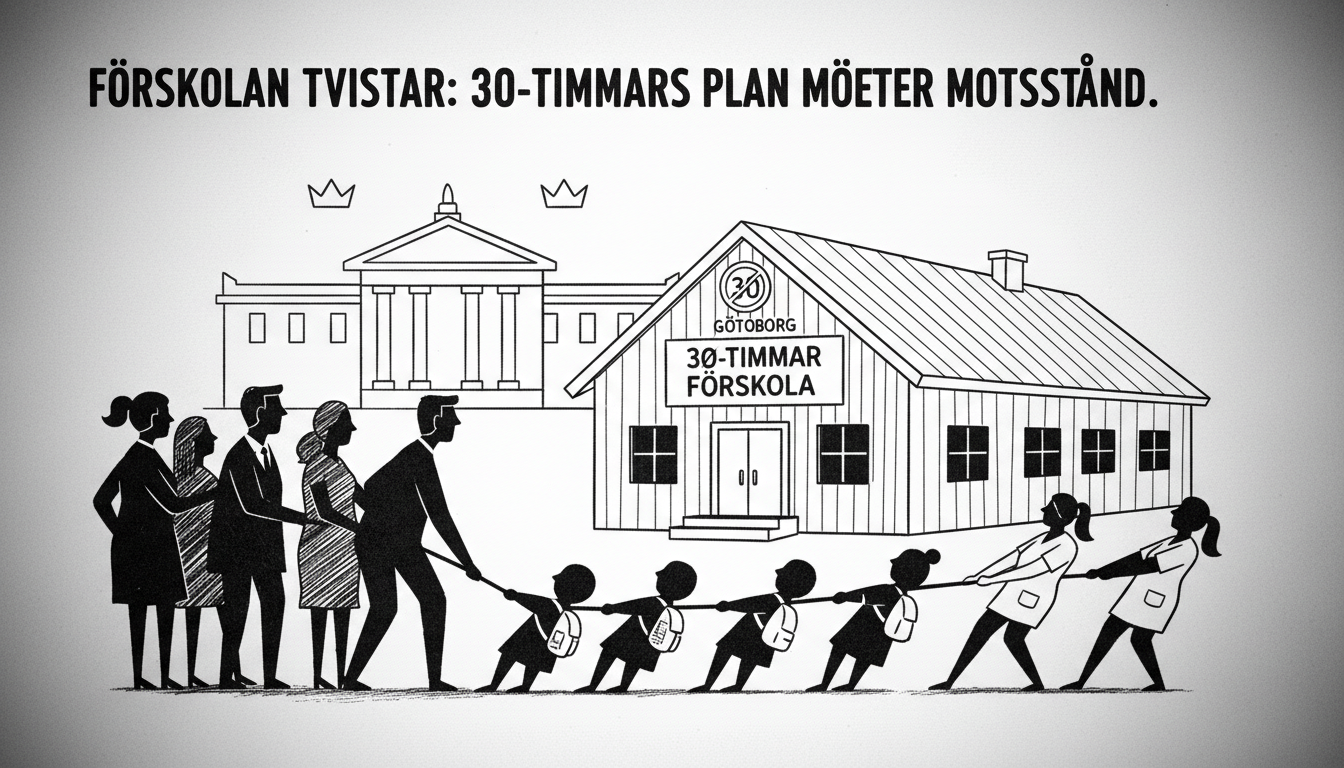Gothenburg's red-green coalition government plans to introduce 30-hour preschool for children of parents on parental leave next year. The proposal has created division among opposition parties, with several groups voicing strong objections.
Dan-Ove Marcelind from the Christian Democrats delivered particularly sharp criticism. He described the initiative as a 30-hour frenzy that will negatively impact children and preschool staff. The political debate centers on whether expanding preschool hours serves families' best interests or creates unnecessary strain on the education system.
Sweden's parental leave system typically provides 480 days of paid leave per child, which parents can use until the child turns eight. Gothenburg's proposal would allow parents to access preschool services while still technically on parental leave, representing a significant shift from traditional Swedish family policy.
This controversy reflects broader tensions in Swedish politics about work-life balance and public services. Sweden already maintains one of Europe's most comprehensive childcare systems, with nearly all children aged 1-5 enrolled in preschool. The country spends approximately 1.6% of its GDP on early childhood education and care.
International readers should understand that Swedish preschools differ significantly from daycare centers in other countries. They follow a national curriculum focused on play-based learning and democratic values. Staff requirements include university-educated teachers comprising at least one-third of employees.
The opposition's split reaction reveals deeper ideological divisions. Center-right parties typically support policies that give parents more choice, while left-leaning parties emphasize collective solutions. This proposal seems to challenge traditional political alignments by offering individual flexibility through expanded public services.
What practical challenges might this policy create? Preschool staff already face workload pressures, and adding children of parents on parental leave could strain resources. The proposal also raises questions about educational quality and whether very young children benefit from extended institutional care.
Gothenburg's experiment could influence national policy if implemented successfully. Other Swedish municipalities often observe and replicate innovative approaches from major cities. The outcome may shape future debates about parental leave utilization and early childhood education access across Scandinavia.
This situation demonstrates how Nordic welfare states continuously adapt to changing family needs. The real test will come during implementation, when theoretical benefits meet practical realities in preschool classrooms throughout Gothenburg.

